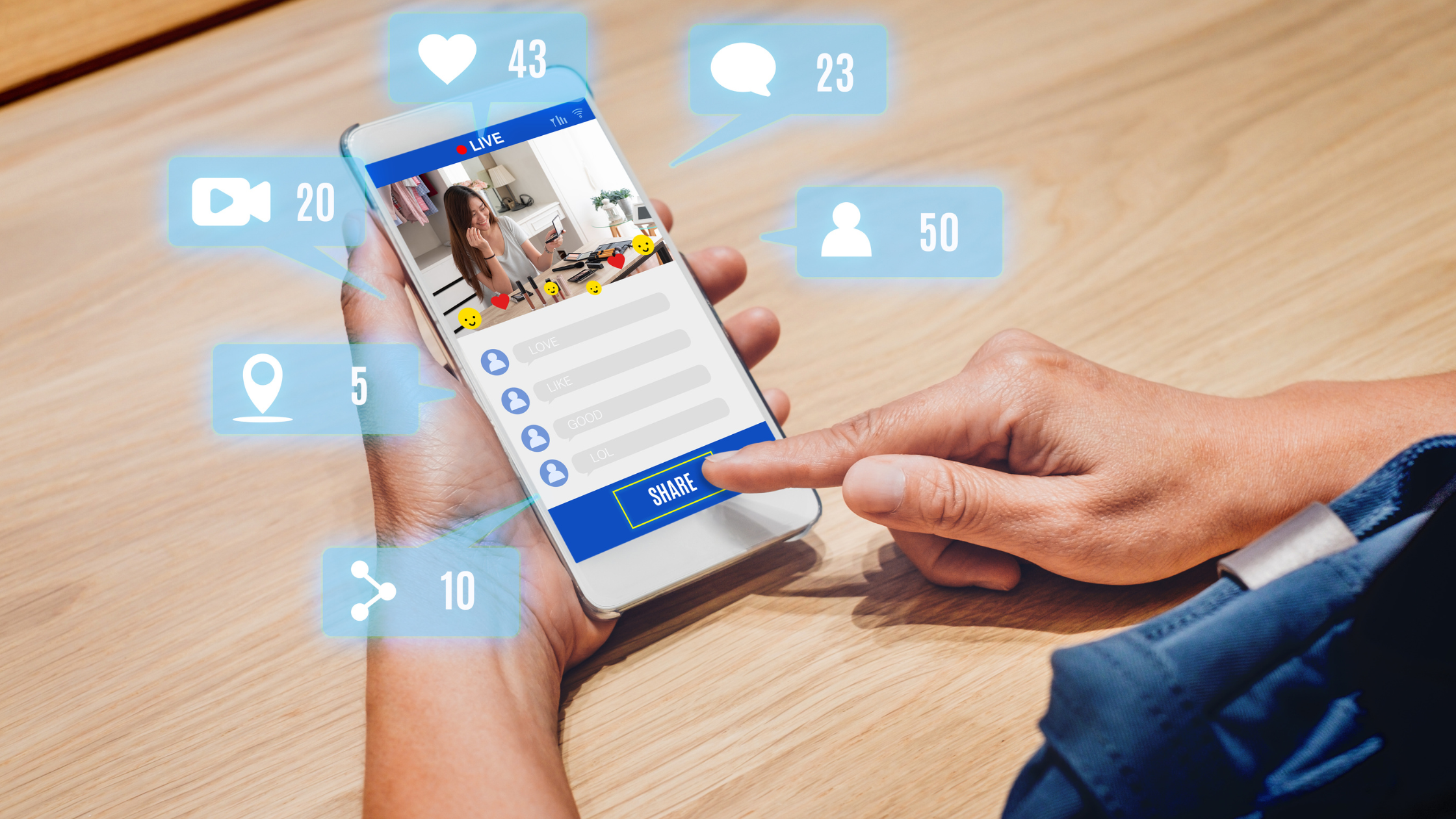When OpenAI shadow dropped ChatGPT to the general public in November of 2022, it quickly became the fastest-growing software service in history.
Table of Contents
Hitting over 100 million users in just a few short months, it surpassed the growth rate of TikTok and other popular platforms.
Since then, traffic to ChatGPT has declined slightly, but the idea of AI being a transformative and disruptive force is still on the minds of business leaders in every industry.
When it comes to influencer marketing, there have been questions about whether AI content can play a part in a successful influencer strategy.
In this article, we’ll try to break down where AI content generation currently stands in relation to influencer marketing and whether it’s something that resonates with social media audiences.
What Makes Influencer Marketing Work So Well?
To understand the place that AI may hold in the future of influencer content generation, it’s important to first identify why influencer marketing works so well.
On the surface, it may seem like influencer marketing social media is successful because that’s where the traffic and views are. People have migrated from traditional media like TV and magazines to social media.
But it’s more than just the traffic and views. For example, Google search gets more daily visits than all the top social influencers combined. It’s not even close.
Yet, paid advertising campaigns on Google (Adwords) don’t have the same impact as influencer marketing. Adwords campaigns are still very effective, but the ability to build trust, loyalty, and brand authority simply doesn’t compare to a successfully implemented influencer campaign.
The reason for this is simple. It’s trust and authenticity. Social media influencers have a trust with their huge audiences that’s unlike anything else in modern media.
Brands have used ambassadors and spokespeople for decades, but influencers have a tighter and more engaged relationship with their audience.
It’s this type of relationship that attracts marketers and brands more than just the traffic or view counts.
So the question then becomes, if the key to influencer marketing success is authenticity, how will AI content fit into that framework without detracting from it?
Current Consumer Sentiment Towards AI Content
Virtual influencers are nothing new and date back to well before the release of ChatGPT and other large language models (LLMs) going public.
Because recent LLMs created such a seismic shift in how we look at AI’s possible impact on society, much of the data regarding virtual influencers is now out of date.
Way back in 2016, @lilmiquela was launched on Instagram. This completely virtual influencer quickly gained followers and even partnered with fashion brands Calvin Klein and Prada in 2018.
As we all know, 2018 might as well be a lifetime ago when we look at changes to pop culture and overall societal trends.
In 2018, an AI influencer was seen as a unique novelty that gave us a glimpse into a technological future. It was interesting, unique, and felt fresh like something out of a sci-fi future. While there was some minor backlash, the account was still able to garner over 2 million followers.
But 2024 is different. While AI is surging with business use cases, there is an underlying concern about how much AI technology may disrupt culture, the economy, and information. This shift is changing how AI is seen through a marketing lens.
AI Examples In Marketing That Missed The Mark
Earlier this year, Apple, which is considered one of the top branding and marketing success stories in modern times, ran into some trouble with its ad titled “Crush”.
In the web ad, popular creative tools like paintbrushes and musical instruments were all crushed via a hydraulic press into the form of a new iPad. Many Apple users immediately voiced their displeasure at the messaging that seemed to devalue human creativity in favor of a digital alternative.
Apple later scrapped plans to air the ad and apologized for “missing the mark”.
There’s no question that Apple products have fueled creativity since the 1980s, both with their features and their innovative advertising campaigns that are often emulated. But the Crush ad shows the delicate balance brands must find in 2024 due to fears over AI and technology.
In another example, Google’s recent high-profile TV ad sparked similar controversy when it depicted a young girl using a Gemini AI assistant to write a fan letter to her sports hero, Olympic hurdler Sydney McLaughlin-Levrone.
The ad aired during the 2024 Summer Olympics and viewers were quick to point out the seemingly inauthentic nature of using AI to write a child’s letter explaining her hopes, dreams, and aspirations.
According to AdWeek, the System 1 rating metric used for analyzing the creativity and effectiveness of ads found that the ad’s core storyline was viewed positively, but the emotional response turned negative when the Gemini AI product was mentioned.
The reason to examine these two examples is to understand how sentiment has changed toward AI from a marketing perspective. AI content, technology, and virtual influencers are viewed much differently by customers than they were just a few years ago.
This doesn’t mean virtual influencers and AI content have no place, but the nuances involved and the very recent cultural shifts can make finding the right balance incredibly difficult.
Using AI For Influencer Interactions And Engagement
This year, Instagram started testing a program known as AI Studio which uses AI technology to create content and respond to comments using an AI version of the real-world creator.
While the system is still in beta and being tested by creators, reactions have been mixed.
Meta used an earlier version of AI Studio to create a licensed digital version of Kendall Jenner named “Billie”. Other famous influencers were also recreated as part of the program, including Tom Brady and Snoop Dogg.
The AI Jenner doppelganger gained about 200K followers in total and replies to the content posted were often negative.
According to the New York Times, one of the top replies to an AI video on the channel simply stated, “This is so stupid.”
The reply garnered over 12K likes.
The Billie account was ultimately deactivated this summer, but Meta continues to fine-tune its program with the hopes of finding the right balance between AI content and authentic influencer relationships.
Overall, the very different reactions by audiences to @lilmiquela and Billie show how marketers need to approach AI content and interactions with caution.
What Does The Future Hold For AI Content And Influencer Marketing
As some of these examples help to illustrate, navigating this fast-moving customer shift around AI content can be extremely difficult for marketers.
Even top brands with stellar track records found themselves experiencing a backlash when they pushed messaging around AI content or experimented with AI interactions this summer.
There’s no doubt that clever and creative uses for AI can create a viral moment. However, these cases mostly go viral for how they demonstrate the way AI can push technological boundaries. They don’t go viral for the connection they make with an audience.
In the end, influencer marketing is about authentic relationships between the influencers and their followers. Brands should take special care not to harm that connection or risk betraying the authenticity that helped influencer marketing become so effective in the first place.
AI tools will undoubtedly continue to filter into virtually every aspect of daily life. As marketers, we need to decide where and when to apply these tools to elevate the connection and engagement with an audience — not detract from it.





